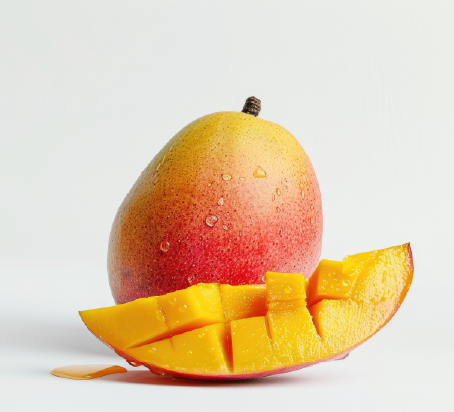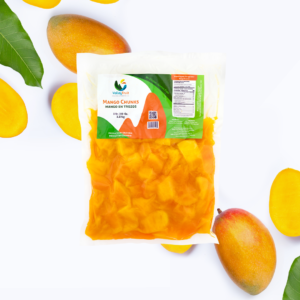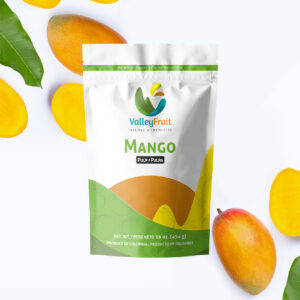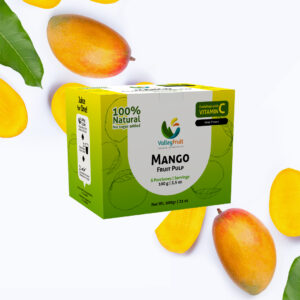Mango, in all its varieties, has large amounts of vitamin A,3 it is low in calories and provides the body with antioxidants, vitamin C and vitamin B5. It is appropriate for
carbohydrate metabolism and problems in the epidermis. It is very easy to digest.
Mango is very rich in vitamins A, C and E, with antioxidant action, capable of neutralizing free radicals responsible for aging and a risk factor for various degenerative and cardiovascular diseases and even some types of cancer. Pulp of about 100 g covers the daily needs of vitamin C in an adult individual, 30% of vitamin A and 23% of vitamin E. Vitamin C is involved in the formation of red blood cells, collagen, bones and teeth and promotes the absorption of iron present in food, while strengthening the body’s defense system against infections and allergies, reducing cholesterol levels and delaying the aging process of cells.
– The high content of mango in vitamin A and beta-carotene stands out, which are transformed in the body into vitamin A, as it needs it. The vitamin
A is essential for correct vision, helps to achieve good condition of the skin and mucous membranes, and prevents respiratory infections. Consumption of mango pulp
It can be a very useful nutritional strategy in the prevention of blindness caused by the deficiency of this vitamin in children in developing countries. The organism,
Furthermore, it assimilates this nutrient better thanks to the presence of vitamin E, which protects vitamin A from oxidation in the intestine and tissues.
– It also contains small amounts of B vitamins, such as thiamine (B1), riboflavin (B2) and pyridoxine (B6), necessary for the proper functioning of the body.
nervous system, skin and hair health, as well as for the synthesis of amino acids and fat metabolism, among others. In this way, eating mango helps, in
In a certain way, to prevent hair loss, it relieves or prevents skin problems, muscle weakness and disorders of nervous origin.






